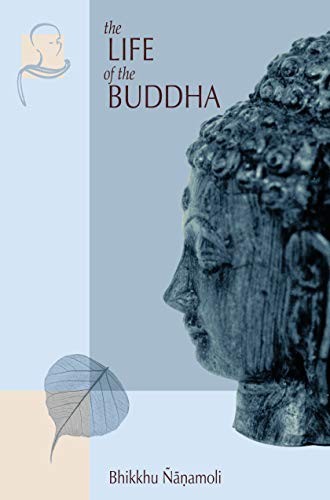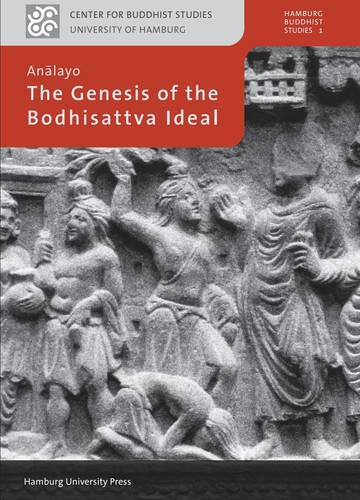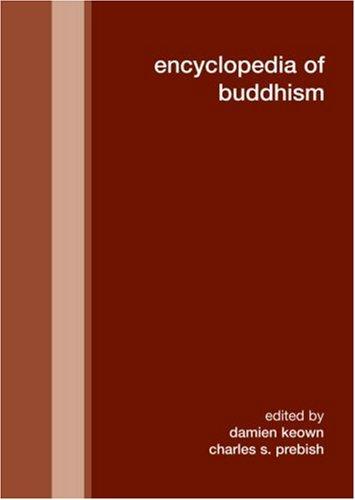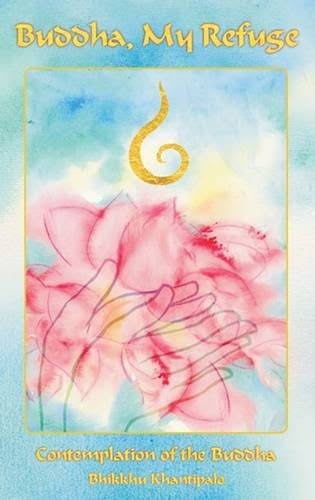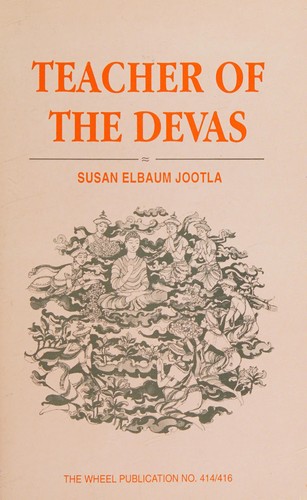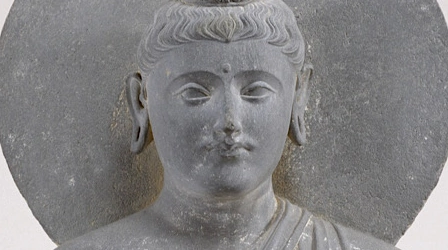The Buddha
Also available: As a Syllabus
Subscribe to this topic via: RSS
The founder of the Buddhist religion, whose 45-year ministry was memorized and passed down by his disciples in the corpus of literature we now call the Early Buddhist Texts.

Courtesy of Jean-Pierre Dalbéra, CC BY-SA 4.0
Table of Contents
- Books (15)
- Canonical Works (52)
- Readings (45)
- Audio/Video (9)
- Reference Shelf (1)
- Related Topics (1)
Books (15)
Featured:
-
⭐ Recommended
-
⭐ Recommended
-
131 pages
See also:
Canonical Works (52)
Featured:
-
The traditional, commentarial introduction to the Pāli Jātaka collection containing the most famous mythologized biography of the Buddha.
-
The Buddha lists the 32 Marks which Brahmanical prophecy claim marked him for greatness and explains the specific causes and results that each signify, in this late addition to the Canon.
-
A Sanskrit version of the Buddha’s first sermon preserved in the Mahayana Canon.
-
Ninety-one eons ago, the Buddha Vipassī arose in the world, perfected and fully awakened…
-
A translation from the Mahāvastu on the Buddha’s first journey after the Awakening to the place where he would give his first official teaching.
-
… there’s no other ascetic or brahmin—whether past, future, or present—whose direct knowledge is superior to the Buddha
-
A respected brahmin sends a student to closely examine the Buddha, and see if he measures up to the Brahmanical prophecies.
-
Saccaka the debater challenges the Buddha. The Buddha is unimpressed.
-
With skilful means and compassion, you were born in the Śākya clan…
-
May all these beings have happy minds! Listen closely to my words…
-
Gone beyond all things,
Even the gods revere him -
A rare glimpse into the Bodhisattva’s journey.
-
⭐ Recommended
This is the difference between a Realized One, a perfected one, a fully awakened Buddha, and a mendicant freed by wisdom.
-
⭐ Recommended
Māra ensures that the Buddha fails to get alms, but the Buddha is happy either way.
-
Eight kinds of assemblies: aristocrats, brahmins, householders, ascetics, and various deities. The Buddha taught each.
-
The current Buddha Gotama, reflecting on how the world had fallen into suffering, became awakened by understanding dependent origination.
See also:
Readings (45)
Featured:
-
🥇 Best of
… based on what can be culled from the Madhyama-āgama discourse in comparison with the other versions, it seems possible to arrive at a coherent narrative of [the founding] of the order of nuns.
-
⭐ Recommended
In recognition of its pre-eminence among the Master’s epithets, the early Buddhist teachers and their successors have applied their wisdom and erudition to fathoming the multiple implications of this suggestive word.
-
… scholars have had little to no luck in identifying a Brahmanical source for the 32 marks of a great Man, in spite of the fact that the Buddhist texts are nearly unanimous is stating that this is a Brahmanical concept
-
There is no story of Gotama having touched the ground before his awakening in the earliest Buddhist texts describing these events
-
[the Apadāna] does in fact include a Sumedha story which features the honoring of Dīpaṅkara Buddha with lotus flowers
-
if we consider the Buddha’s hagiography, romantic love proves to be a significant feature of the story.
-
One of the most obvious fallacies of modern Theravāda Buddhism is the depiction of the Buddha with a full head of hair.
-
⭐ Recommended
… there may have been Bhikkhunīs in existence before the request for ordination by Mahāpajāpatī
-
… it is most likely that the Buddha suffered from mesenteric infarction caused by an occlusion of an opening of the superior mesenteric artery
-
What is going on? Can the Buddha be feeling these things?
-
A survey of what the Pali Canon says about Tathāgatas.
-
⭐ Recommended
It is inescapable that, whatever the reading, according to the early texts the Buddha did not have “normal” genitals. And the only reading actually supported by a canonical text is that the Buddha was intersex, and his genitals looked like a woman’s.
-
Not only is there no mention of a wife or child in the Buddha’s recounting of his renunciation, he seems to suggest that he was still living at home with [both] his parents
-
A traditional explication of these two singular qualities of the Buddha.
-
… it could be interpreted as a dish that was ‘made well softened,’ that is to say, ‘easily digestible’ and thus suitable
-
A translation of the Abhidhānappadīpikā’s entry for the Buddha.
-
The Buddha was not omniscient.
-
… curiously, while a great deal of attention is given to the Buddha’s last meal, almost none has been given to his first meal after he became awakened, and about which it is possible to say something concrete
-
… it was common for khattiyans to be referred to by brahmanical priestly names
1 page
See also:
